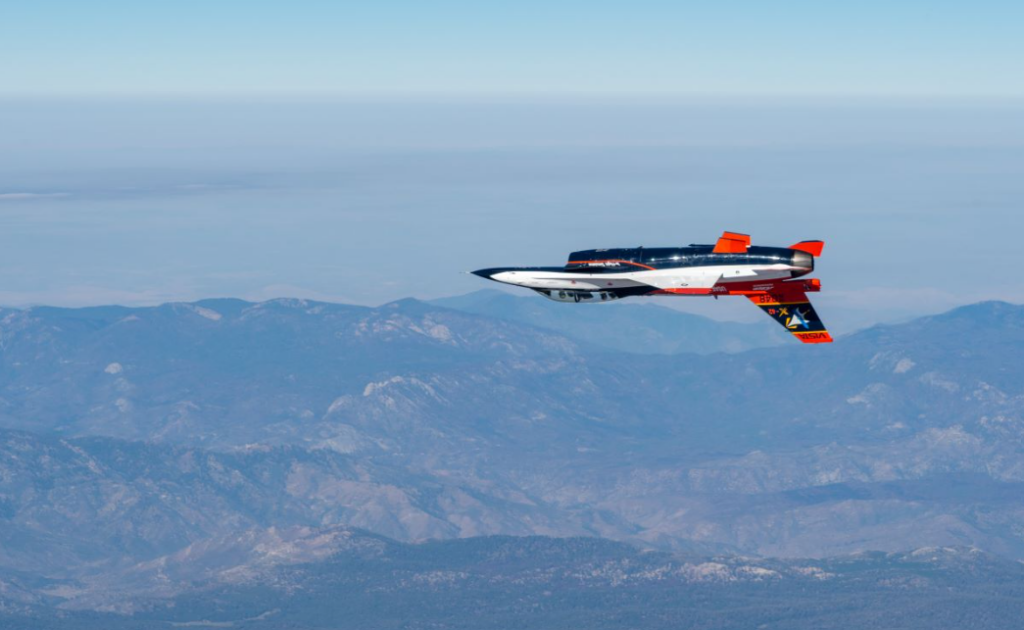Collaborative Autonomy Tested in EpiSci/USAF Autonomy Prime Flights – May 2

California-based EpiSci said this week that the company finished multiple collaborative autonomy tests last month under the U.S. Air Force’s Autonomy Prime program to train operators on the company’s Starling Tactical Artificial Intelligence (AI) system. Autonomy Prime is under the service’s AFWERX innovation arm.
“This [Starling] effort continues EpiSci’s participation in a variety of autonomy efforts across the Department of Defense, focused on delivering trusted autonomy for a secure future for U.S. and allied warfighters,” EpiSci said on May 1.
“The flight test events demonstrated EpiSci’s autonomous search algorithms during live flight on two unique uncrewed platform types,” the company said. “The test results demonstrated Starling’s portability to integrate on and enable uncrewed aircraft to operate in contested environments and perform search and automatic target recognition tasks.”
Privately-held Anduril and General Atomics got the nod from the Air Force last week in the service’s first round of Collaborative Combat Aircraft (CCA) picks to beat out publicly traded defense industry heavyweights, Boeing, Lockheed Martin and Northrop Grumman.
EpiSci has said that its Tactical AI software is hardware agnostic and has already been deployed “on a growing list of systems from swarms of uncrewed aerial and maritime systems to tactical fighter aircraft.”
Last month, EpiSci said that it had begun working with Northrop Grumman to integrate EpiSci’s TacticalAI software with Northrop Grumman’s aeronautics system architecture “to accelerate the delivery of advanced autonomous solutions.”
Dan “Animal” Javorsek, EpiSci’s chief technology officer and a former F-22/F-35 pilot and Air Combat Evolution (ACE) program manager at DARPA, said in the EpiSci statement on May 1 that company “teams have integrated and operated TacticalAI-enabled autonomy products on 10 uncrewed airborne and surface platform types in less than 6 months.”
“EpiSci is committed to accelerate the pace at which we can bring relevant operational capabilities to the warfighter across all domains,” he said.
RTX in December 2022 said its venture capital arm had made a minority investment in EpiSci.
Air Force leaders have said that CCA is one of their top priorities. Kendall has said that plans are to field “more than 100” CCAs in the next five years with a top unit cost of $25 million to $30 million.
By the end of the year, Kendall said that he will fly on the X-62A Variable Stability In-Flight Simulator Test Aircraft (VISTA) equipped with the Shield AI Hivemind AI piloting software. VISTA is a modified Block 30 F-16D in service since 1992.
Rep. Ken Calvert (R-Calif.), the chairman of the House Appropriations Committee’s defense panel, said this week that he is concerned by a steep reduction in the Air Force’s request for Autonomy Prime in fiscal 2025.
A version of this story originally appeared in affiliate publication Defense Daily.
The post Collaborative Autonomy Tested in EpiSci/USAF Autonomy Prime Flights – May 2 appeared first on Avionics International.
—————
Boost Internet Speed–
Free Business Hosting–
Free Email Account–
Dropcatch–
Free Secure Email–
Secure Email–
Cheap VOIP Calls–
Free Hosting–
Boost Inflight Wifi–
Premium Domains–
Free Domains





